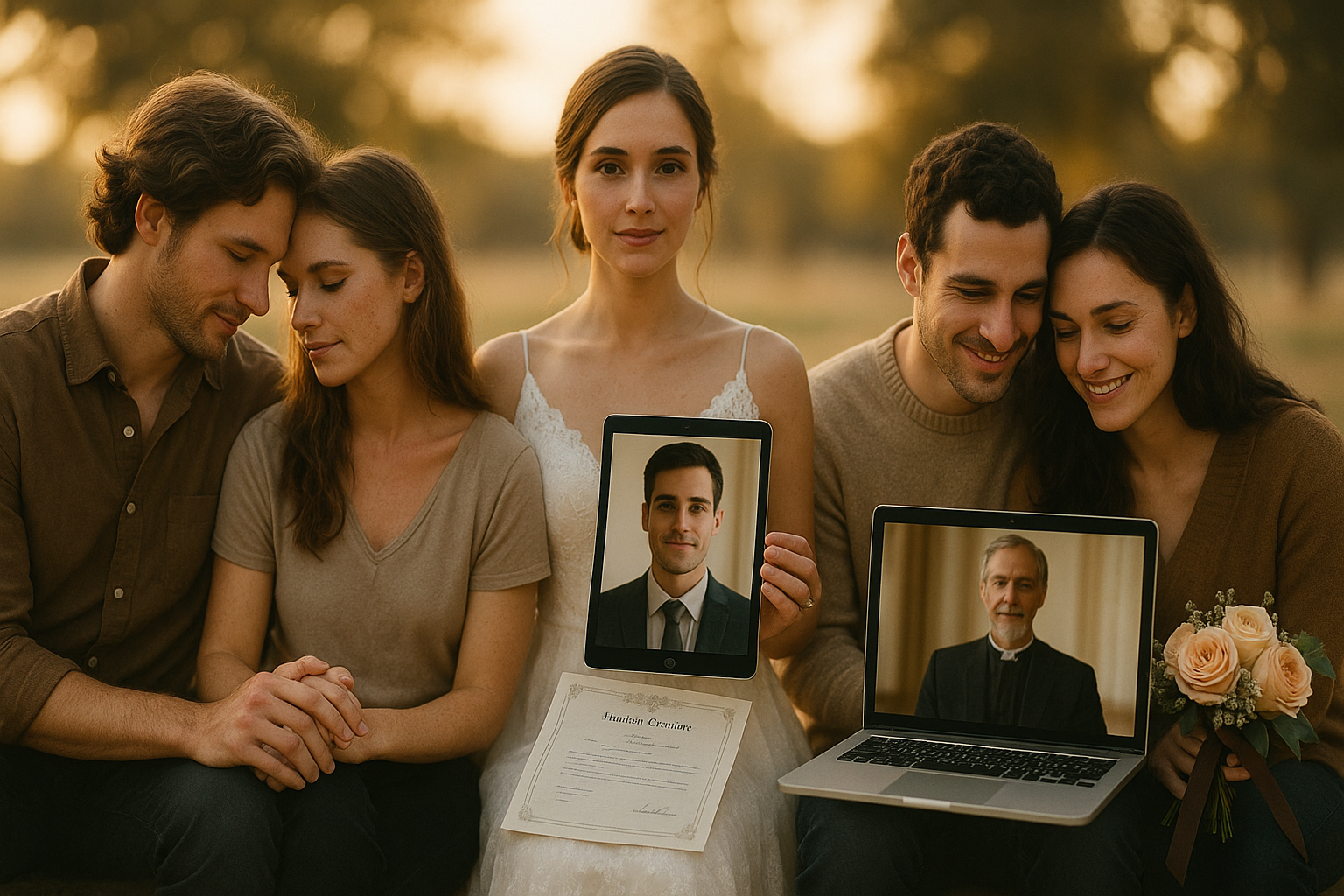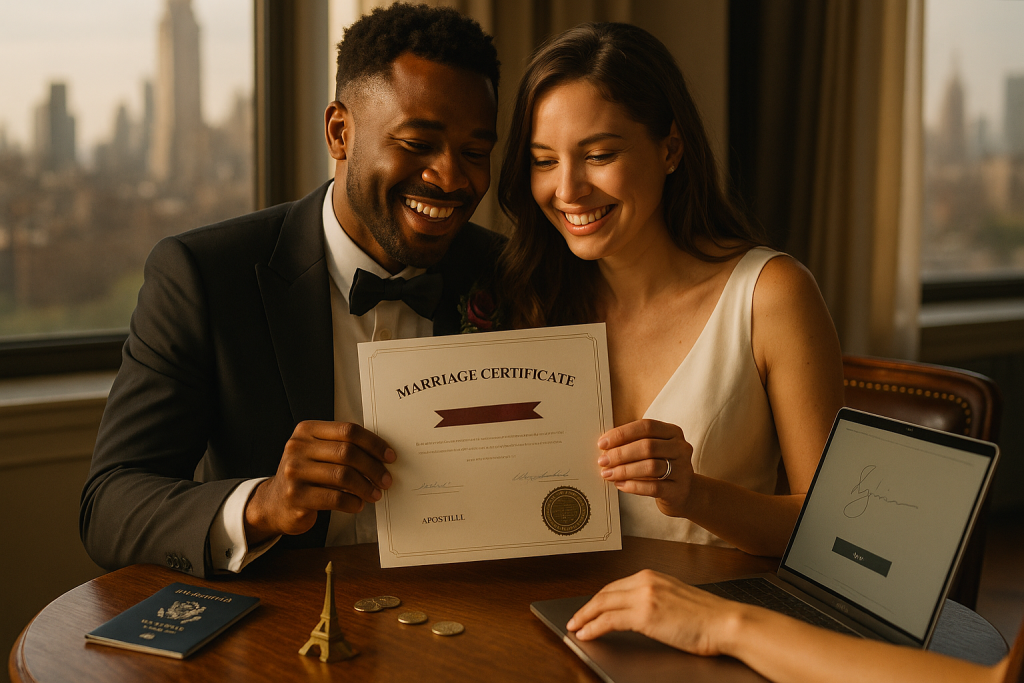Are you confused by the differences between Common Law Marriage, Proxy Marriage, and the increasingly popular Virtual Marriage? If you’re thinking about getting married online, understanding each method’s legal ins and outs is key. Let’s clear up the details so you can confidently choose how you want to say “I do” — whether in person, by proxy, or through a virtual ceremony with an online minister.
What is a Common Law Marriage?
Common law marriage is a legal framework—recognized in certain U.S. states—where a couple is considered legally married without an official ceremony or marriage license, provided they’ve lived together for a significant period and present themselves as married. However, not all states honor common law marriages, especially when it comes to immigration and federal benefits. Find the current states recognizing common law here.
Understanding Proxy Marriage
A proxy marriage occurs when one or both parties are not physically present at the ceremony and someone else stands in for the absent partner. While Montana allows double proxy weddings (neither party present), most states and countries do not. Because of legal complexity, proxy marriages can be tricky for immigration and often still require an in-person consummation to be federally recognized in the U.S. Learn more about U.S. immigration marriage requirements at USCIS or visit our Immigration Support page.
Virtual Marriage: Marrying Online in the Modern Age
Virtual Marriage is quickly becoming a preferred choice—especially in a world shaped by technology, remote work, and global relationships. In a virtual marriage, an online minister officiates the ceremony live via platforms like Zoom, making it possible for couples to get an online marriage certificate without ever leaving home. This method is 100% legal in several U.S. jurisdictions and recognized in many cases for domestic and international couples. Curious how it works? Check out our step-by-step guide.
Comparing the Legalities: Which Option is Right for You?
- Common Law: Only in specific states, usually requires cohabitation and shared assets.
- Proxy Marriage: Rarely recognized widely; best for those in the military or couples separated by borders.
- Virtual Marriage: Legal in several states, fast, can work for international, LGBTQ+, and immigration purposes after proper apostille or document translation.
Online Marriage & International Couples
If you’re an international couple, an online wedding ceremony can save months of long-distance paperwork challenges. After your virtual marriage, you might need an apostille to make your certificate valid abroad—start with our Apostille Service.
FAQs: Common Law, Proxy, and Virtual Marriage
How do I get an online marriage license?
Start the process with our easy online application and we’ll help you every step of the way!
Is a virtual marriage ceremony legal everywhere?
No, but it is legally recognized in several U.S. counties and some foreign jurisdictions. Always check the laws in your home region and use our resources to confirm.
Do I need an apostille for my virtual marriage certificate?
If you’re using your marriage certificate outside the U.S., you’ll need an apostille. We can help process your paperwork quickly!
Can LGBTQ+ couples get married online?
Absolutely! Our online wedding ceremonies are open to all couples regardless of orientation.
Will a common law marriage count for immigration?
Typically, no—USCIS most often requires a government-issued marriage certificate. Virtual marriage is often a faster, clearer path. Find more details at our immigration support page.
Why Choose Virtual Same Day Marriage?
If clarity, convenience, and speed matter for your love story, Virtual Same Day Marriage is here for you. We’re real people guiding real couples through legal, meaningful ceremonies. Contact us today to get started, or browse more helpful info on our blog!




